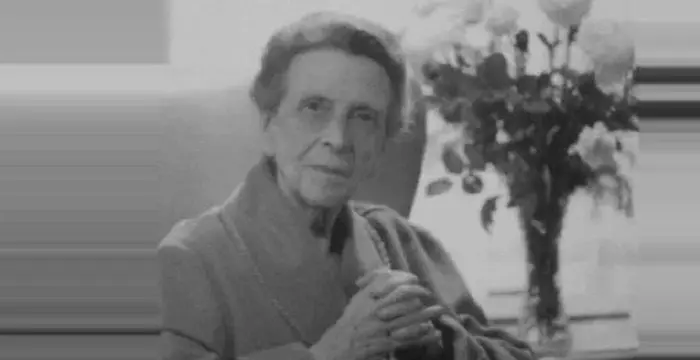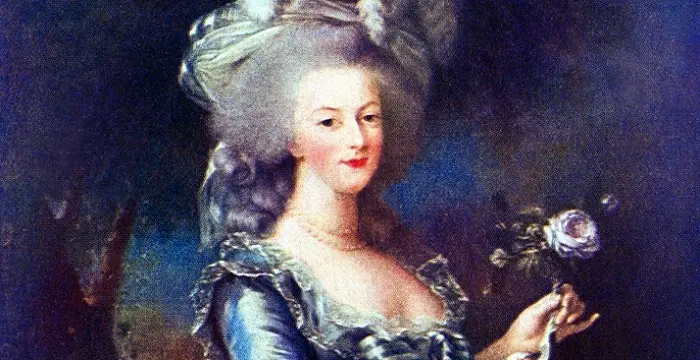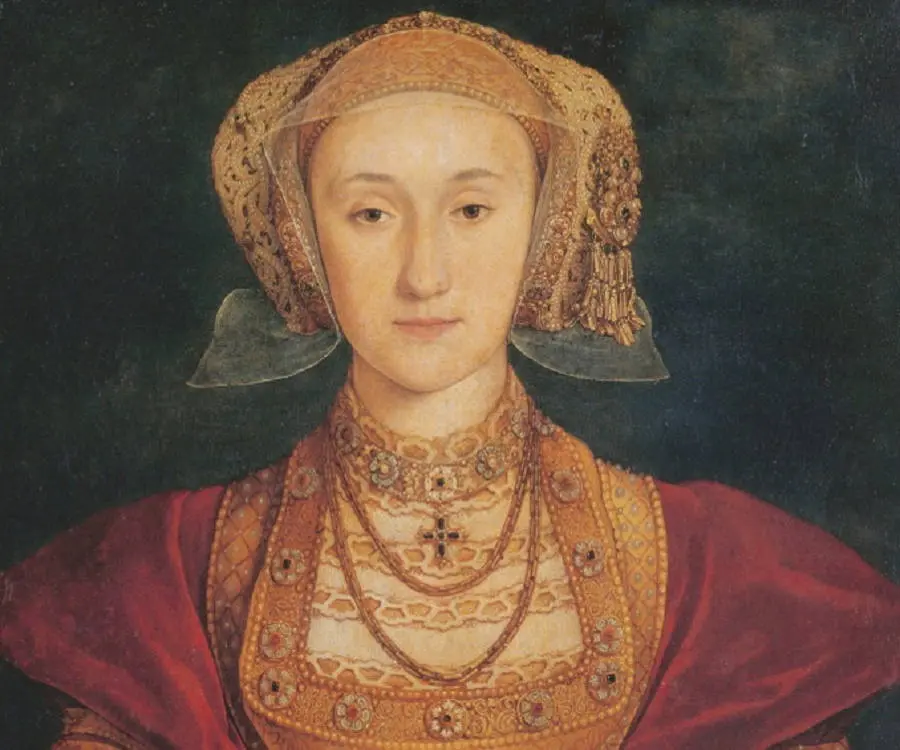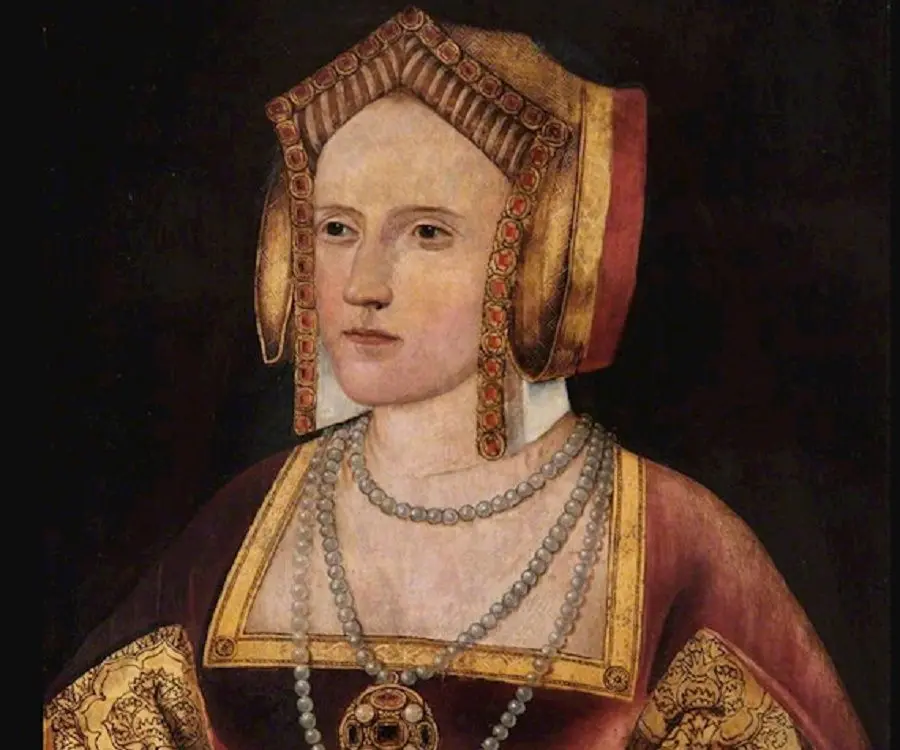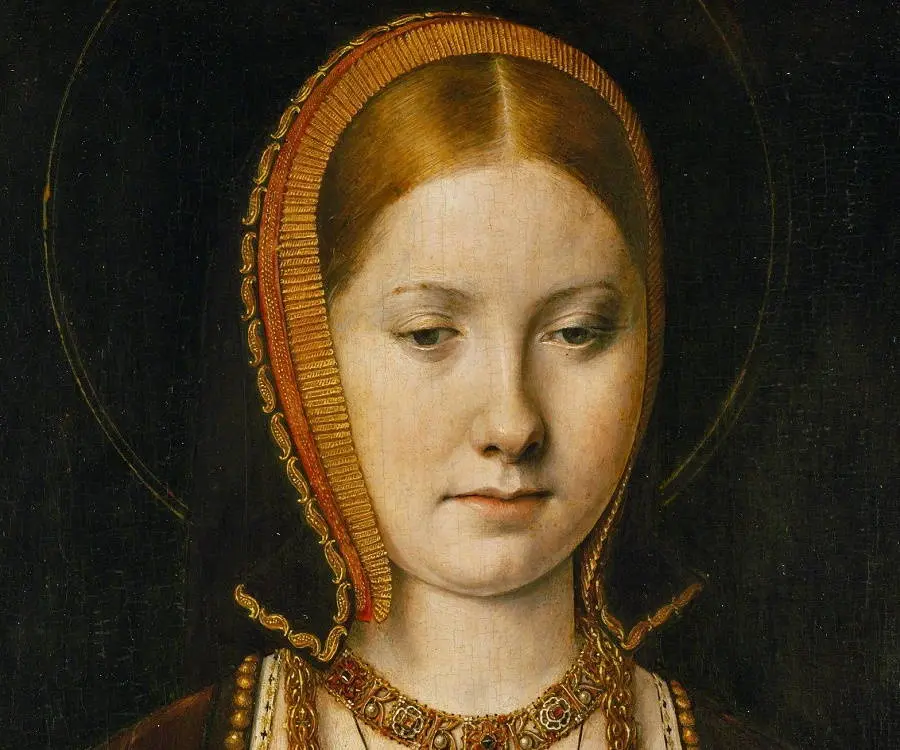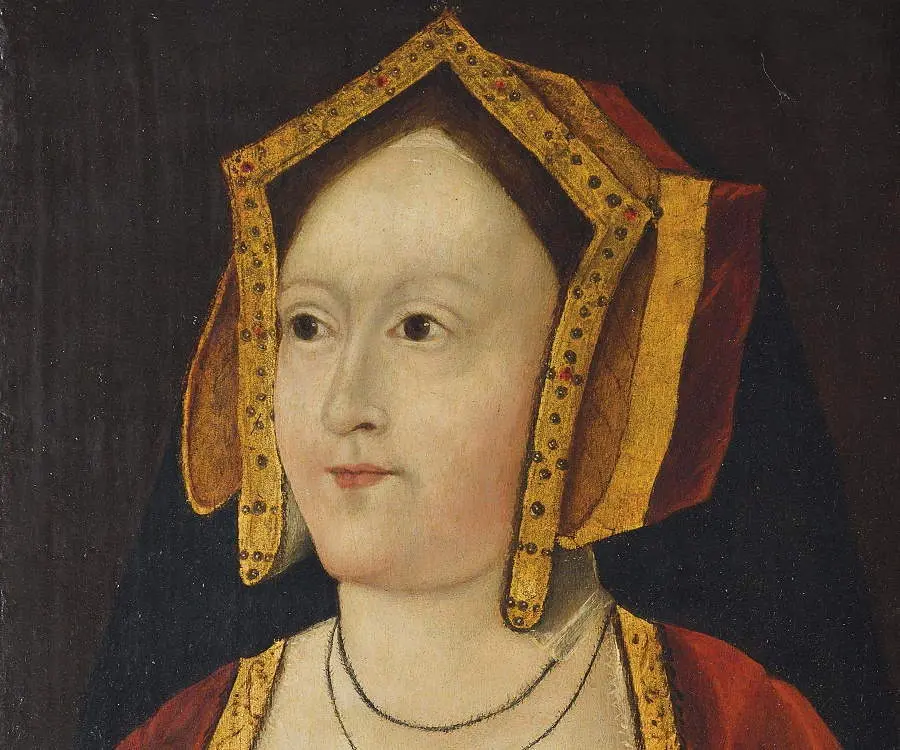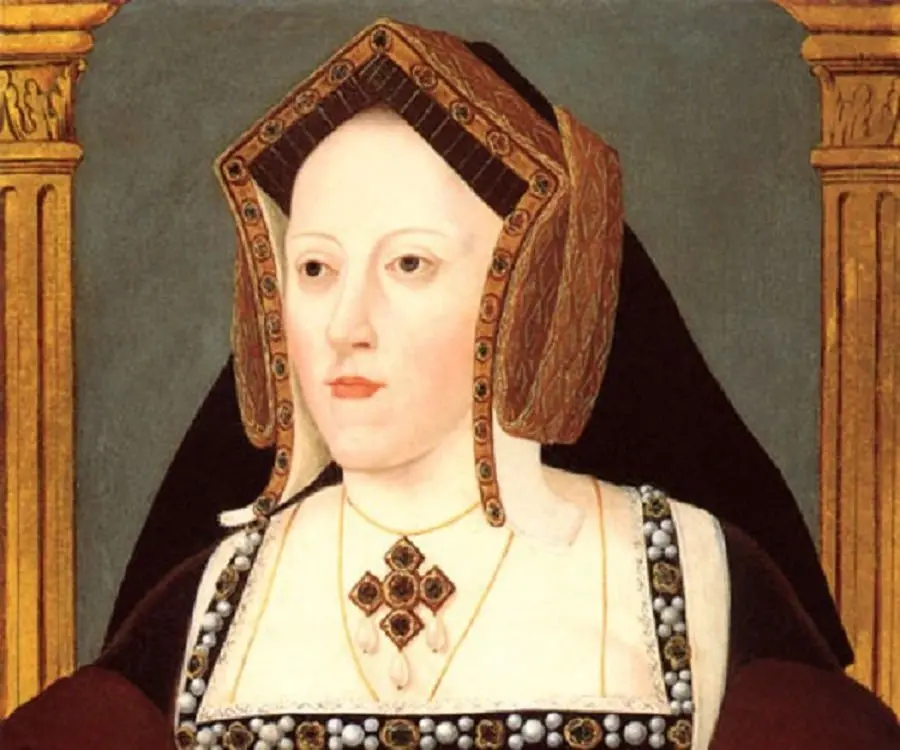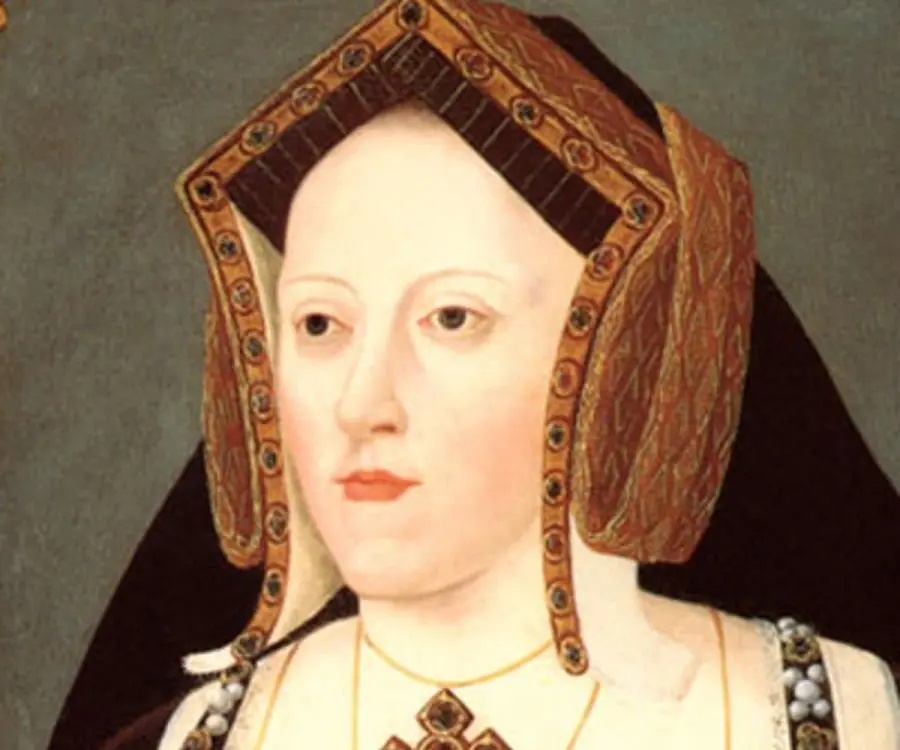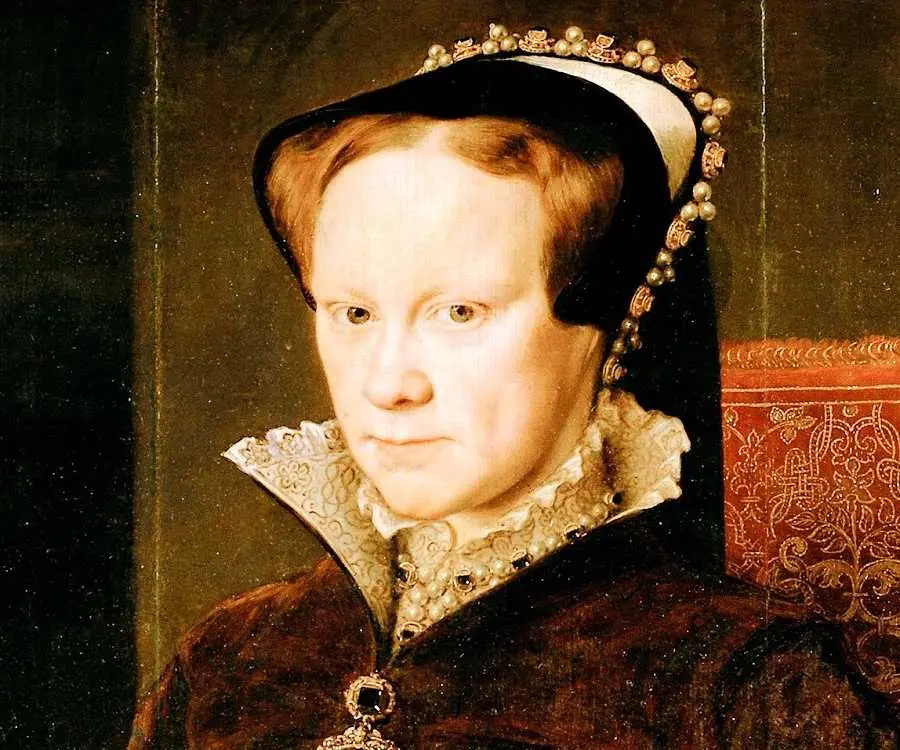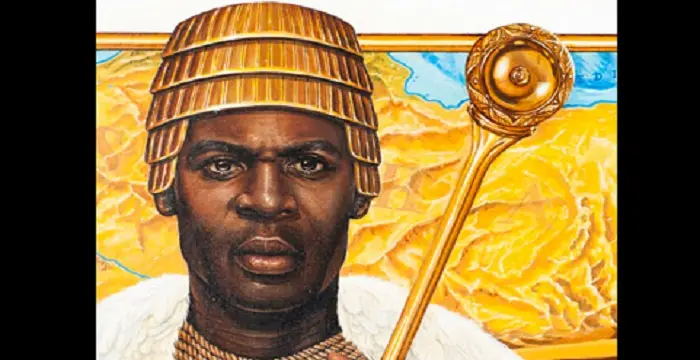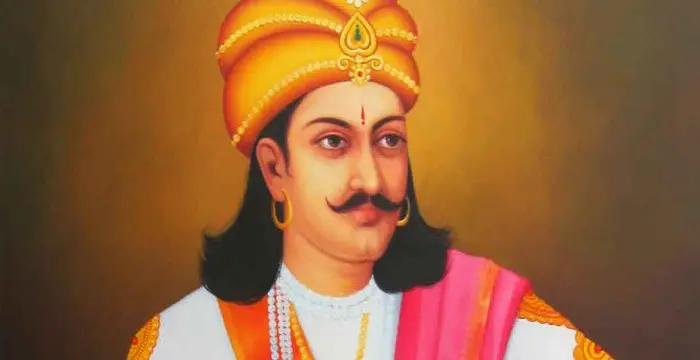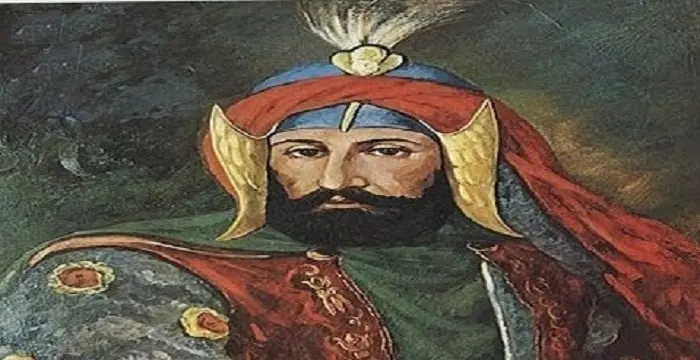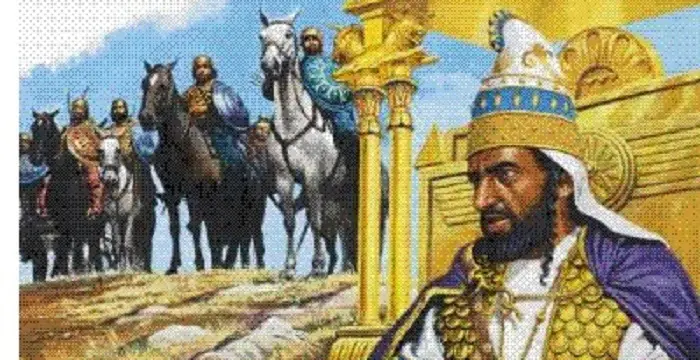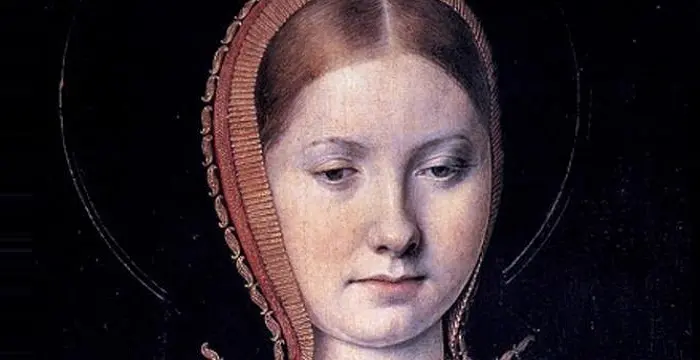
Catherine of Aragon - Empresses, Timeline and Personal Life
Catherine of Aragon's Personal Details
Catherine of Aragon was the Queen of England who ruled from 1509 to 1533
| Information | Detail |
|---|---|
| Birthday | December 16, 1485 |
| Died on | January 7, 1536 |
| Nationality | British |
| Famous | Historical Personalities, Empresses & Queens, Ambassador, Empresses, Queens |
| Spouses | Henry VIII of England |
| Siblings | Joanna of Aragon, Joanna of Castile, Maria of Aragon, Queen of Naples, Queen of Portugal |
| Childrens | Mary I of England |
| Birth Place | Alcalá de Henares |
| Religion | Catholicism |
| Gender | Female |
| Father | Ferdinand II of Aragon |
| Mother | Isabella I of Castile |
| Sun Sign | Sagittarius |
| Born in | Alcalá de Henares |
| Famous as | Ambassador |
| Died at Age | 50 |
// Famous Queens
Jetsun Pema
Jetsun Pema is the Queen consort of Bhutan. Check out this biography to know about her childhood, family life, achievements and fun facts about her life.
Princess Alice of Battenberg
Princess Andrew of Greece and Denmark, also known as Princess Victoria Alice Elizabeth Julia Marie of Battenberg, was the mother of Prince Philip, Duke of Edinburgh and mother-in-law of Queen Elizabeth II. This biography profiles her childhood, famil
Marie Antoinette
Marie Antoinette was the Queen of France and Navarre from 1774 to 1792. who played a major role in provoking the French Revolution. This biography of Marie Antoinette provides detailed information about her childhood and life
Catherine of Aragon's photo
Who is Catherine of Aragon?
Catherine of Aragon was the Queen of England who ruled from 1509 to 1533. She was merely three years old when her fate as the future Queen of England was sealed following her engagement to Prince Arthur, Prince of Wales, heir apparent to the English throne. Despite her marriage to Arthur in 1501, tragedy struck her early on in life. To start off with, Arthur died an untimely death. She was then betrothed to Henry, Duke of York who went on to become King Henry VIII. Following her marriage to the King, she was instated as the Queen of England. She proved to be a competent regent while King Henry VIII was campaigning in France. But tragedy struck her life yet again by mid-1520’s as King Henry VIII was enamoured by Anne Boleyn and grew to be greatly dissatisfied with his marriage to Catherine as she did not give birth to a male heir. What followed was a controversial string of events involving King’s plea for annulment of his marriage to Catherine, Catherine’s defence argument, Pope’s verdict, King’s secret marriage to Anne Boleyn and Catherine’s banishment.
// Famous Empresses
Jetsun Pema
Jetsun Pema is the Queen consort of Bhutan. Check out this biography to know about her childhood, family life, achievements and fun facts about her life.
Princess Alice of Battenberg
Princess Andrew of Greece and Denmark, also known as Princess Victoria Alice Elizabeth Julia Marie of Battenberg, was the mother of Prince Philip, Duke of Edinburgh and mother-in-law of Queen Elizabeth II. This biography profiles her childhood, famil
Marie Antoinette
Marie Antoinette was the Queen of France and Navarre from 1774 to 1792. who played a major role in provoking the French Revolution. This biography of Marie Antoinette provides detailed information about her childhood and life
Childhood & Early Life
Catherine of Aragon was born on December 16, 1485 to King Ferdinand II of Aragon and Queen Isabella I of Castile at the Archbishop's Palace in Alcalá de Henares near Madrid.
Young Catherine attained formal education from Alessandro Geraldini who taught her varied subjects. She was a multi-linguist, trained in Spanish, Latin, French and Greek. Additionally, she even learned basic domestic skills such as cooking, sewing, spinning and so on.
From an early age, Catherine developed a religious bent of mind which laid the foundation for the future course of life.
Later Life
Catherine married Arthur, Prince of Wales, apparent heir to the throne in 1501. After, the untimely death of Arthur in 1502, she married his younger brother, Henry. in 1509, after he had taken over the throne as King Henry VIII.
Highly intelligent, Catherine was appointed as the Regent or Governor of England on June 11, 1513, during King Henry VIII’s absence as he went to France on a military campaign.
With Scots invading England, she ordered Thomas Lovell to raise an army in the midland counties. Dressed in armour, she rode northside and addressed the troops. Inspired by her words, the troop won the Battle of Flodden Field.
Overwhelmed by the victory at the Battle of Flodden Field, she sent her husband, King Henry VIII, bloodied coat of King James IV of Scotland, who died in the battle, to use the same as a banner at the siege of Tournai
Catherine was drawn towards spiritualism and divinity. Furthermore, her interest over academics augmented deeply. She not just aimed at broadening her knowledge but that of her daughter too. It was mostly due to Catherine’s influence that education amongst women became prevalent. For the same, she donated large sum of money to colleges.
Personal Life & Legacy
Catherine was engaged to Arthur, Prince of Wales, heir to the English throne, since childhood. They were eventually married on November 14, 1501 at Old St. Paul's Cathedral
Following their marriage, Arthur was sent on a commission to the border of Wales, presiding over the Council of Wales and the Marches. Catherine accompanied him on the trip. However, the two fell seriously ill which resulted in the death of Arthur.
To avoid returning the dowry, Henry VII proposed marriage of Catherine and his second son, Henry, Duke of York. The marriage was, however, delayed for the groom to reach a suitable age. During this time, Catherine lived as a virtual prisoner at Durham House in London.
Since cannon law prohibited marriage to brother’s widow, Catherine had to first attain affirmation from the Pope, which she finally received after proving that her marriage to Arthur was unconsummated.
Catherine married Henry VIII on June 11, 1509 in a private ceremony at Greenwich Church. Prior to the wedding, Henry had acceded to the throne and was known as King Henry VIII. The two were crowned on June 24, 1509
From 1510 to 1518, Catherine was pregnant six times. However, except for her daughter, Mary I, none of her children survived. Most of them died while stillborn or after a few hours of birth, including three sons.
The inability to give the King a heir caused a major rift between the two. He grew to be largely frustrated and dissatisfied with his marriage and looked for means to annul it.
In 1525, he was besotted by Anne Boleyn, a lady-in-waiting to Queen Catherine. The main aim of the relation was to get a male heir.
King Henry VIII came to believe that his marriage to Catherine was a cursed one. He interpreted Bible stating that if a man married his brother’s wife, the couple would be childless. Though this interpretation was blatantly false in their case as they had a daughter Mary I, he did not count the girl as a child.
With the aim to remarry and get a male heir, he appealed to Pope Clement VII to annul his marriage to Catherine as she had been his brother’s wife, despite her consistent plea for being a virgin then.
Catherine directly appealed to Pope Clement VII, who in turn was the prisoner of Catherine’s cousin, Charles V, Emperor of the Roman Empire. Pope Clement VII finally gave the decrement in favour of Catherine. The king was forbidden to marry again and Catherine was given her rightful place as the legitimate wife and reinstated as the Queen of England.
Despite the judgement being in Catherine’s favour, Henry VIII banished her from court and married Anne Boleyn. He defended the legality of the marriage stating that Catherine was his brother’s wife. A special court was convened wherein Crammer gave out the verdict in the king’s favour. He annulled Henry VIII’s marriage to Catherine stating it as illegal.
Despite being legally misconstrued, Catherine till the end of her life claimed herself as the Queen of England and the King’s rightfully wedded wife. Henry VIII although gave her the title of Dowager Princess of Wales.
Catherine spent the better part of her later life at the More Castle. In 1535, she was transferred to a single room at Kimbolton Castle. She was forbidden to meet her daughter as well. Catherine spent much of her later life engaged in spiritual practices. She fasted for days at a stretch.
In December 1535, her health worsened. Fearing the state of her daughter, she made her will and asked her cousin Charles V to protect her. She breathed her last on January 7, 1536 in Kimbolton Castle. She was buried in Peterborough Castle with a ceremony that was entitled for Dowage Princess of Wales and not for Queen of England.
Posthumously, Catherine has been the biographical subject of any writers and authors. The controversial book, ‘The Education of Christian Women’ was dedicated to her.
Several paintings, portraits and sculptures of Catherine have been commissioned. Alcalá de Henares, the place of her birth, bears a statue of Catherine holding a book and rose. A road in Ampthill is named after her
On numerous occasions, her life has been portrayed on television, films, plays, novels, songs, poems, and so on.
Trivia
Interestingly, there is hardly a time that her tomb in Peterborough Cathedral is not decorated with flowers or pomegranates, her heraldic symbol.
Catherine of Aragon biography timelines
- // 16th Dec 1485Catherine of Aragon was born on December 16, 1485 to King Ferdinand II of Aragon and Queen Isabella I of Castile at the Archbishop's Palace in Alcalá de Henares near Madrid.
- // 1501 To 1509Catherine married Arthur, Prince of Wales, apparent heir to the throne in 1501. After, the untimely death of Arthur in 1502, she married his younger brother, Henry. in 1509, after he had taken over the throne as King Henry VIII.
- // 14th Nov 1501Catherine was engaged to Arthur, Prince of Wales, heir to the English throne, since childhood. They were eventually married on November 14, 1501 at Old St. Paul's Cathedral
- // 24th Jun 1509Catherine married Henry VIII on June 11, 1509 in a private ceremony at Greenwich Church. Prior to the wedding, Henry had acceded to the throne and was known as King Henry VIII. The two were crowned on June 24, 1509
- // 1510 To 1518From 1510 to 1518, Catherine was pregnant six times. However, except for her daughter, Mary I, none of her children survived. Most of them died while stillborn or after a few hours of birth, including three sons.
- // 11th Jun 1513Highly intelligent, Catherine was appointed as the Regent or Governor of England on June 11, 1513, during King Henry VIII’s absence as he went to France on a military campaign.
- // 1525In 1525, he was besotted by Anne Boleyn, a lady-in-waiting to Queen Catherine. The main aim of the relation was to get a male heir.
- // 1535Catherine spent the better part of her later life at the More Castle. In 1535, she was transferred to a single room at Kimbolton Castle. She was forbidden to meet her daughter as well. Catherine spent much of her later life engaged in spiritual practices. She fasted for days at a stretch.
- // Dec 1535 To 7th Jan 1536In December 1535, her health worsened. Fearing the state of her daughter, she made her will and asked her cousin Charles V to protect her. She breathed her last on January 7, 1536 in Kimbolton Castle. She was buried in Peterborough Castle with a ceremony that was entitled for Dowage Princess of Wales and not for Queen of England.
// Famous Historical Personalities
Sundiata Keita
Sundiata Keita was the founder of the Mali Empire in West Africa. This biography profiles his childhood, early life, struggles, founding of empire, rule, administration, achievements and also gives some fun facts.
Ashoka
Ashoka was the third emperor of the Mauryan Dynasty and ruled almost the entire Indian subcontinent. This biography profiles his childhood, life, reign, achievements and timeline
Jetsun Pema
Jetsun Pema is the Queen consort of Bhutan. Check out this biography to know about her childhood, family life, achievements and fun facts about her life.
Murad IV
Murad IV was one of the mighty Sultans in the history of the Ottoman Empire. This biography profiles his childhood, family, accession, rule, administration and timeline.
Xerxes I
Xerxes I (Xerxes the Great) was the fourth and the most famous king of the Archaemenid dynasty of Persia. This biography profiles his childhood, family, personal life, life history, achievements, campaigns, administration, death and other facts.
Sargon of Akkad
Sargon of Akkad, also called ‘Sargon the Great’, ‘Sarru-Kan’ and ‘Shar-Gani-Sharri’, was the founder and first king of the Akkadian Empire. This biography profiles his childhood, life, rule, administration, timeline, and gives some fun facts.
Catherine of Aragon's FAQ
What is Catherine of Aragon birthday?
Catherine of Aragon was born at 1485-12-16
When was Catherine of Aragon died?
Catherine of Aragon was died at 1536-01-07
Where was Catherine of Aragon died?
Catherine of Aragon was died in Kimbolton Castle
Which age was Catherine of Aragon died?
Catherine of Aragon was died at age 50
Where is Catherine of Aragon's birth place?
Catherine of Aragon was born in Alcalá de Henares
What is Catherine of Aragon nationalities?
Catherine of Aragon's nationalities is British
Who is Catherine of Aragon spouses?
Catherine of Aragon's spouses is Henry VIII of England
Who is Catherine of Aragon siblings?
Catherine of Aragon's siblings is Joanna of Aragon, Joanna of Castile, Maria of Aragon, Queen of Naples, Queen of Portugal
Who is Catherine of Aragon childrens?
Catherine of Aragon's childrens is Mary I of England
What is Catherine of Aragon's religion?
Catherine of Aragon's religion is Catholicism
Who is Catherine of Aragon's father?
Catherine of Aragon's father is Ferdinand II of Aragon
Who is Catherine of Aragon's mother?
Catherine of Aragon's mother is Isabella I of Castile
What is Catherine of Aragon's sun sign?
Catherine of Aragon is Sagittarius
How famous is Catherine of Aragon?
Catherine of Aragon is famouse as Ambassador

